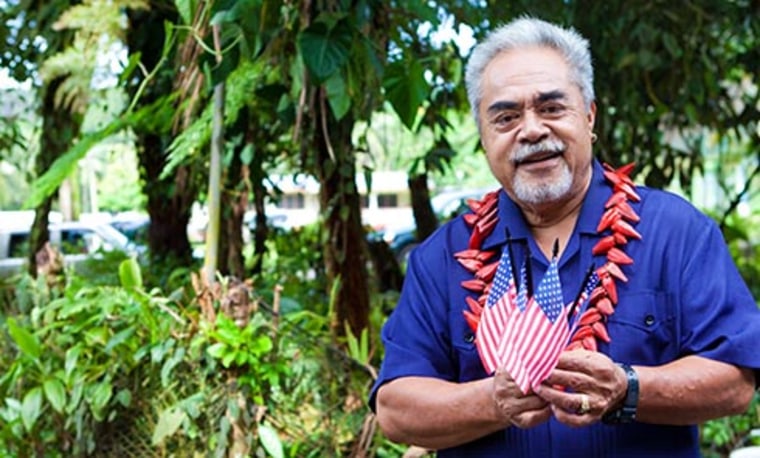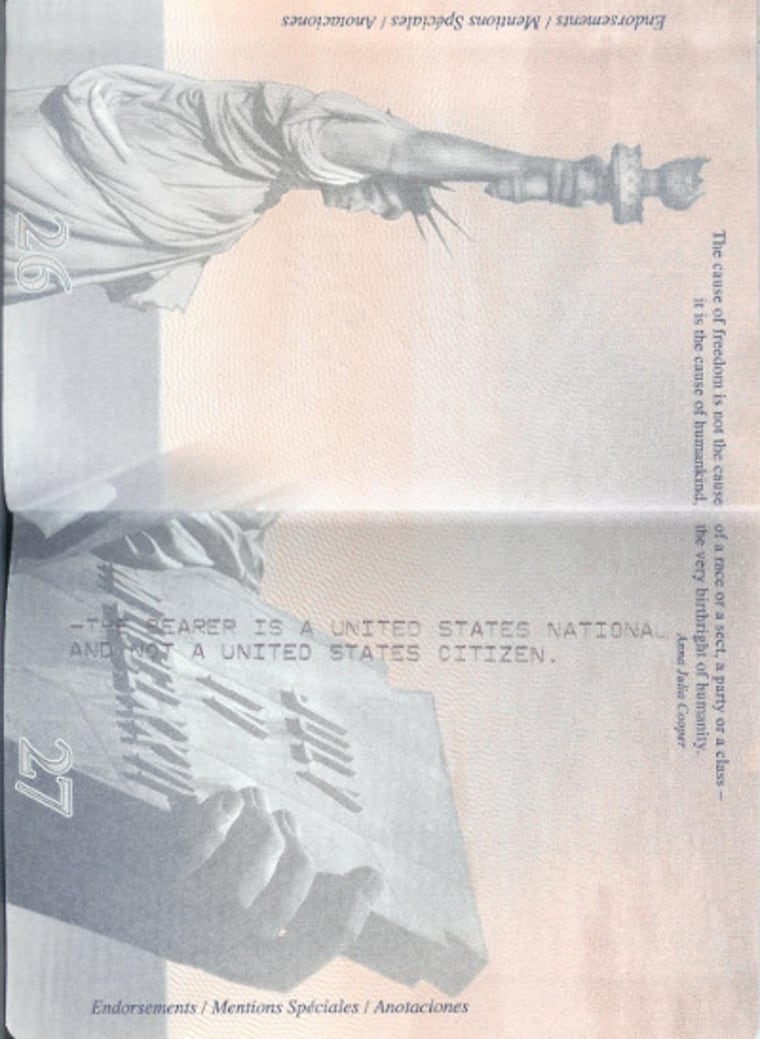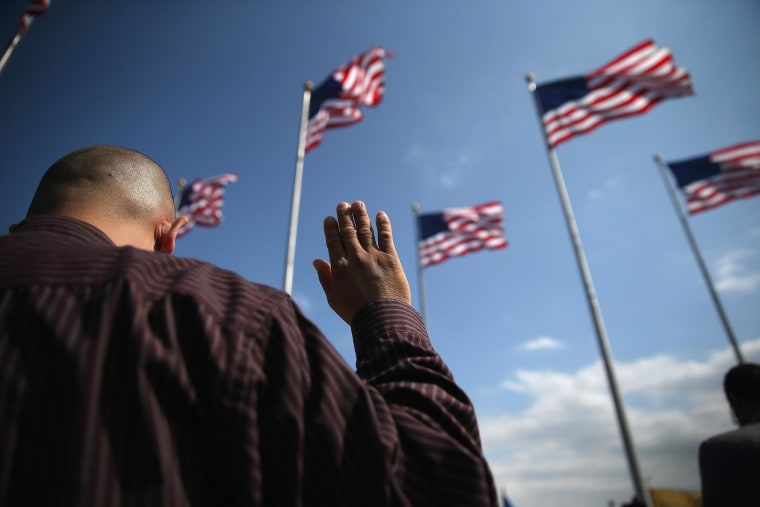The case for birthright citizenship for individuals born in U.S. territories, Tuaua v. United States, could be decided by the Supreme Court. Attorneys filed a Petition for Writ of Certiorari Monday requesting that the Supreme Court review the decision of a lower court denying citizenship to people born in American Samoa.
“Our goal is for the Supreme Court to recognize that citizenship is a constitutional right, not a mere congressional privilege, for the millions of Americans born in U.S. territories,” Neil Weare, president and founder of We the People Project, a nonprofit advocacy organization for Americans in U.S. territories, told NBC News.

In June 2015, the District of Columbia Circuit Court ruled that the citizenship clause of the 14th Amendment was “ambiguous” as to whether birthright citizenship was guaranteed in overseas U.S. territories.
“The Supreme Court has an opportunity now to turn the page on the controversial Insular Cases, which were decided by the same Supreme Court that decided Plessy v. Ferguson and have been criticized for establishing a doctrine of ‘separate and unequal’ in U.S. territories,” Weare said.
The five plaintiffs in Tuaua v. United States are U.S. nationals, but not citizens, because they were born in American Samoa, the only U.S. territory that does not automatically grant U.S. citizenship. As such, they cannot vote or work jobs that require citizenship, though they can enlist in the military. Three of the five plaintiffs are veterans, and reports indicate that American Samoa has one of the highest rates of U.S. military service in the nation.
“My passport says I am a U.S. national, but not a U.S. citizen,” Leneuoti Tuaua, the lead plaintiff, said in a statement. “As someone born on U.S. soil who signed up for the draft during the Vietnam War, my family should not be treated as second-class Americans. I am hopeful that the Supreme Court will agree the Constitution does not allow Congress to create two separate classes of Americans.”

The case has implications regarding the reach of the U.S. Constitution in all U.S. territories, which include American Samoa, Guam, the Northern Mariana Islands, Puerto Rico, and the U.S. Virgin Islands. According to the U.S. Census, over four million Americans live in U.S. territories.
Follow NBC Asian America on Facebook, Twitter, Instagram, and Tumblr.
RELATED
